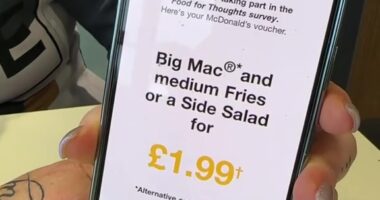ALL banks could be required to refund fraud victims under new rules proposed by the payments regulator.
Scam victims lost £208 million in the first half of 2020 through authorised push payment (APP) frauds, where they are tricked into transferring money to a fraudster posing as a genuine payee such as a shop or their bank.
Currently, scam victims face a refund lottery, as it’s up to their bank to decide whether they’ll reimburse them for their losses.
A majority of banking giants, including Barclays, HSBC, Lloyds Banking Group and NatWest, signed up to a voluntary scam code in May 2019.
Under the code, victims will be reimbursed as long as they meet certain standards, but they are allowed to deny a refund if they believe the customer’s own negligence led to the fraud.
Now watchdog the Payments Services Regulator (PSR) is looking to toughen up its rules to protect account holders so they are protected regardless of who they bank with.
How to complain about your bank
BANKS and building societies are required to have a written complaints process that tells helps customers how to make a complaint.
You can complain about the service you have received or if you believe you have been mis-sold a product.
It’s worth making your complaint as soon as possible, as it’ll be easier to remember all the relevant details to strengthen your case.
You should be able to find the information on their website but if you don’t, ask them to send it to you.
Then simply follow each stage of the process, and submit as much evidence as you can.
Once you’ve sent in your complaint, the firm needs to give you a response within eight weeks.
If you don’t get a response within eight weeks or you’re not happy with the one you do get, you can take your complaint to the free Financial Ombudsman Service.
It is proposing either making sure all banks have refund or reimbursement mechanisms or creating its own new code with industry and consumer input to make it compulsory for all banks to follow.
This is something the PSR says it couldn’t do while the UK was a member of the European Union, but the government now has powers to legislate on changes since Brexit.
Not everyone will be eligible for reimbursement and any new code is expected to have exemptions like the current voluntary one.
You will need to be a genuine scam victim and a bank may argue that you weren’t involved in an APP scam or you ignored warnings.
Chris Hemsley, managing director of the PSR, said: “We want to make it harder to commit these devastating crimes and also see victims properly protected.
The consultation closes on April 8 and a wider document will later be released for discussion, after which there may be legislative changes needed.
Consumer watchdog Which? would like the PSR to move faster.
Gareth Shaw, head of money at Which?, said: “Every day the regulator drags its heels, fraud victims are losing hundreds of thousands of pounds to bank transfer scams and the impact on those who lose life-changing sums can be devastating.”
Contact us if you are a scam victim and are not getting anywhere with your bank.
Under the current voluntary code, banks that have signed up will have 15 working days – except in complicated cases – to decide whether a customer is due their money back and they’re expected to reimburse victims as soon as possible.
The banks that are signed up to the voluntary code are as follows: Bank of Scotland, Barclays, Cahoot, Carter Allen, First Direct, Halifax, HSBC, Intelligent Finance, Lloyds Bank, M&S Bank, Metro Bank, Nationwide, NatWest, Royal Bank of Scotland, Santander, Starling Bank, and Ulster Bank.
It is only voluntary and not everyone has signed up.
Major banks yet to join include: Clydesdale Bank, Co-op Bank, Monzo, Post Office Bank, Tesco Bank, Triodos Bank, TSB, Virgin Money, and Yorkshire Bank.
This doesn’t mean these brands won’t support fraud victims.
TSB isn’t joining the code because it introduced its own fraud rules in April 2019 that sees customers refunded if they’ve been a victim of fraud – even if it’s a bank transfer scam.
A spokesperson for TSB described the PSR consultation as “a step in the right direction towards giving better protection for more customers by banks and other payment providers.”
In 2019, NatWest initially refused to refund two fraud victims who were cruelly scammed out of a whopping £28,000 between them.
Meanwhile, landscape gardener David Hunt lost nearly £10,000 when scammers pretended to be from HMRC.
And grandmother Jo Wilson had her £40,000 life savings stolen after crooks pretended to call from NatWest.
















